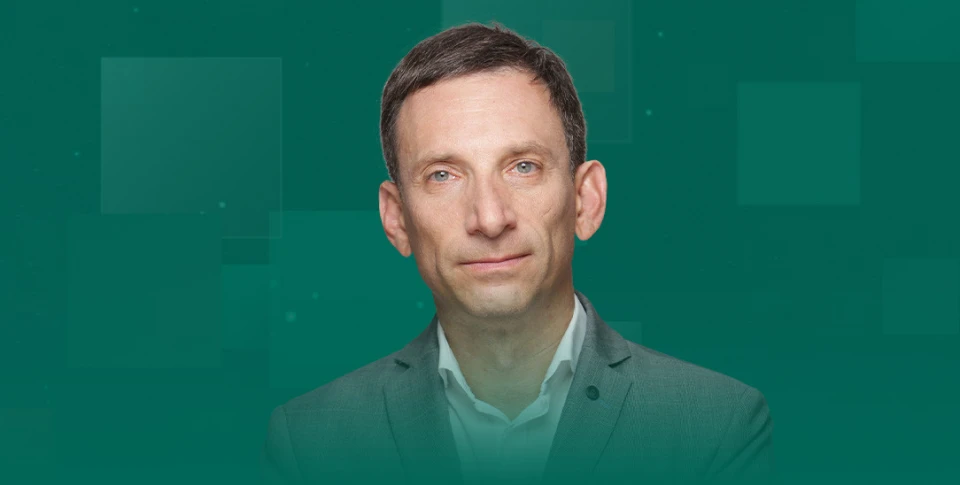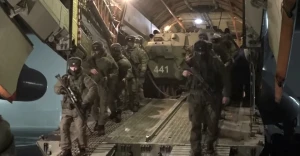
To win the war, Ukraine must join the civilized world
Without NATO, Ukraine will remain vulnerable to Russian aggression for as long as the Russian Federation has resources. Only a genuine, not symbolic, deterrence will end the war soon
The Russian flags raised over the ruins of Vuhledar are a stark reminder that Moscow has no intention of halting its assault on Ukraine. Vladimir Putin remains fixated on his long-term “special operation” to crush Ukraine’s sovereignty, dismantle its statehood, and reforge his imperial ambitions.
Every Ukrainian city that falls into Russian hands is a tragedy. Each occupation not only decimates cities and towns but also emboldens the Russians to press forward, destroying more Ukrainian territory and killing more of its defenders, who fight valiantly on their own land.
At the same time, every Russian advance should serve as a wake-up call. Western media now question whether Putin will stop if he seizes the Donetsk, Luhansk, Kherson, and Zaporizhzhia regions. It’s worth remembering that similar questions were asked after the annexation of Crimea — would Putin be satisfied with the "sacred" Crimea, or would he aim for more territory on the mainland? We now know the answer to that question. The same goes for the occupied territories of Donetsk, Luhansk, Kherson, and Zaporizhzhia. Putin will not stop there. He will push as far as he can to grab more Ukrainian land.
Putin will only stop when he's stopped. He won't care about peace talks, won’t attend peace forums. Instead, he'll mobilize more troops, churn out missiles and shells, and prepare for new offensives on Ukrainian soil.
If we grasp this — if we understand that Putin is willing to pay any price to destroy Ukraine's sovereignty and drive Ukrainians from their homes — then we better understand how Ukraine should talk to its allies, and what we need to discuss when planning for the coming years of this Russian-Ukrainian conflict. Many are now asking how this war should end. The Ukrainian people and leaders have a clear answer: the war ends when Ukraine restores its 1991 borders.
This is a fair and justified goal, but to achieve it, we need real resources — demographic, financial, technical, military. Only with these can we realistically push to reclaim our borders and free all occupied territories. Otherwise, we risk losing more regions to the enemy. That could be the end of the war—but not the one Ukraine or the civilized world, which is helping us, wants, especially against a nuclear-armed state ready for more land grabs.
Can the war end with real security guarantees for Ukraine?
This is a pressing question for Western politicians. However, it’s obvious that any guarantees — whether an invitation to NATO or otherwise — that might corner Russia into a nuclear standoff with the world and risk Russia's own collapse in such a war, are not going to be given while the fighting is still hot. Nor will they cover any territory where the conflict continues, or any land still claimed by Russia.
So, what do we need to analyze now regarding the fall of Vuhledar? The situation around Russia’s continued advance in the Donetsk region? Should we not only stop the Russian offensive with military force but also with political means?
We must realize that the quicker we use political tools to halt Russia’s advance on Ukrainian soil, the more territory will remain under Ukraine’s legitimate control, and the less land will fall under Russian occupation as their offensive grinds forward on foreign soil.
This should be the focus of the next meeting in the Ramstein format. This should be on the agenda when the four leading Western powers meet to discuss how to assist Ukraine, after 2.5 years of relentless Russian aggression — where not even a political solution, nor negotiations, nor a ceasefire seems in sight.
I’m clear on what the solution looks like: it’s Ukraine joining the civilized world.
As long as Ukraine stays in a gray zone, outside of NATO, it will remain a target for Russian aggression. The war will drag on as long as Russia has the military, financial, and human resources to fuel it. But if the world makes it clear to Russia that Ukraine isn’t alone, that Ukraine has the backing of more than just its army and its citizens, there’s at least a chance this war will end sooner — perhaps not in 10 or 20 years, but in the near future, with the majority of Ukrainian territory under Ukrainian control. This is the task we must focus on — after every loss of a Ukrainian city and after every victory in reclaiming Ukrainian land.
About the author. Vitaliy Portnykov, journalist, Shevchenko National Prize laureate
The editors do not always share the opinions expressed by the blog authors.
- News











































